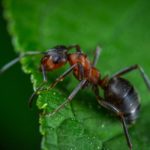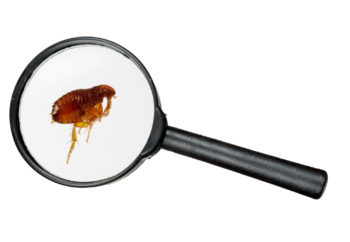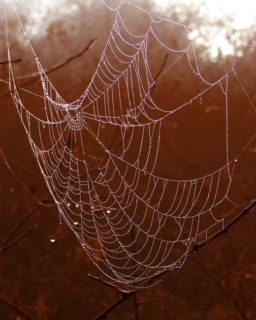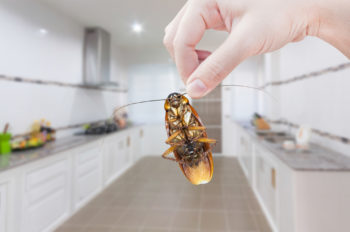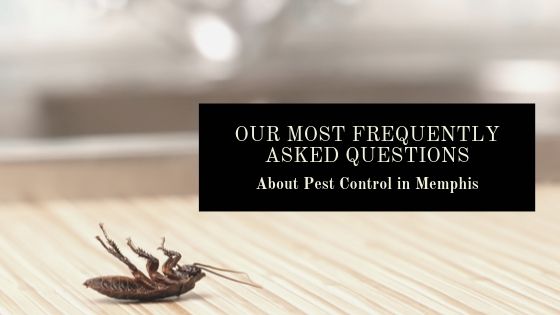
Pest Control in Tennessee
Tennessee is a land unto itself. Residents and visitors alike are drawn to the immense wild beauty, awesome attractions, and rock n’ soul attitude the Volunteer State affords. But the attraction for people is also an attraction for pests of all kinds into homes and businesses. How do you know the pest control company you’re trusting around your family and pets is reputable? How do you know their treatments are effective? With more than two decades serving our friends and neighbors in the community that we love, Inman-Murphy has the knowledge, skills, and experience to become your trusted partner in pest control and prevention. Read on as we explore some of our more frequently asked questions from other Tennessians considering Inman-Murphy pest control services.
What do pest control companies do?
Any pest control company worth their weight will take an integrated approach to your home or business’s pest control management. This requires a multi-pronged treatment plan including an on-site inspection of the present conditions and underlying issues. With this knowledge, the technician should then prepare a detailed plan of attack for treating the issues. There should also be a plan in place for the preventative measures that need to be taken to prevent infestations from reoccurring. Our trained and experienced technicians have the certification and licensure from the Tennessee Department of Agriculture that gives us the ability to treat an incredibly wide range of common pest control issues in Tennessee. Currently, we hold licensing in Bird Control (BDC), Fumigation-Structural (FUM), General Pest and Rodent Control (GRC), and Wood Destroying Organisms (WDO). A pest control company should come into your home or business and quickly be able to spot and neutralize the infestation using pesticides, habitat removal, and limiting the available ingress points into the property. From there, regular maintenance treatments helps to ensure the pests don’t return.
What kind of bugs are most common in Memphis, TN?
At Inman-Murphy we see a wide range of different native pests, as well as, some invasive species making their way into our area. However, by far the most common types of pests in Memphis are Termites, Ants, Bed Bugs, Roaches, Spiders, Mice & Rodents, Wasps, and Mosquitos. In autumn, we also see a great many boxelder bugs in Memphis and the surrounding counties.
How much does it cost to get a pest inspection?
Prices for inspection vary on the size of the property and other factors like ease of access in and around the property. We offer completely free estimates with a detailed description of the services that will be done so you can make the best decision for your home or business after you know all the facts.
How much does it cost for monthly pest control services?
Prices for residential or commercial pest control can vary significantly based on a variety of factors such as the size of the space, level of infestation, type of treatments to be used, etc. We want you to be confident in your choice to use Inman-Murphy pest control so offer 100% free estimates that will go into complete detail about the issues we’ve found, the path to remediation, and all of the costs therein. We don’t believe in presenting a “one-size fits all” low price and then jacking it up after inspection but would rather give you peace of mind by explaining the full extent of your issue and everything needed to make it right. This honest and upfront approach is why we’ve been trusted by our friends and neighbors in Memphis and the surrounding areas for more than 25 years.
Questions About Specific Insects and Pests in Memphis
Are there cockroaches in Memphis?
Unfortunately, yes. Roaches are some of the most common pests worldwide. Because of their nasty habit to infiltrate our food sources, roaches can also be some of the most harmful to your health. Their defecation and secretions can litter an area where roaches have taken up residency and their bodies are known to carry pathogens, which can cause severe sickness or allergic reactions. German cockroaches are some of the most prevalent species – you’ll recognize them by their relatively small size and parallel brown bands on either side of their heads. The species matures rapidly and reproduces almost continuously, with large hatching counts compared to other species, making their populations grow almost exponentially and quite rapidly. The old adage rings true, if you spot one cockroach, chances are good there are many more nearby. Schedule an inspection today to rid your home or business of these nuisance pests.
How do you get rid of termites?
Every situation for exterminating termites from a home or business is unique. Depending on the size of the property, the location, the extent of the infestation, the food source, etc. the integrated pest management plan will differ. Inman-Murphy technicians are trained and certified to inspect your property, locate the problem, neutralize the infestation, and prevent future infestations from occurring. We deploy a variety of tools in our arsenal to accomplish this task including EPA-certified pesticides and fumigation. We also look to help property owners spot likely problem areas like woodstacks near the home or unvented crawl spaces. At Inman-Murphy, we take a proactive approach and utilize innovative equipment and techniques to completely rid your home or business of termites.
Are termites harmful to humans?
Termites are not poisonous and do not act as carriers for pathogens like other types of pests can. However, termites are quite good at causing property damage. Subterranean termites typically swarm in the spring and drywood termites during the late summer or fall. When termites swarm, they are trying to establish new colonies. When this happens to be in the woodwork of your home or business, this can mean significant wood damage over time. Often, these pests will go undetected for long periods as the traces termites leave of their presence can be hard to spot to the untrained eye. If you see certain tell-tale termite signs such as mud tubes around your foundations, piles of wings, or small piles of termite droppings (resembling salt and pepper), chances are good you’ve already got an infestation and need to schedule a service right away.
How do you get rid of bed bugs?
Inman-Murphy technicians are trained in the latest techniques for safely and efficiently removing pests like dreaded bed bugs. One of the least invasive and innovative treatment plans we offer is through the specialized application of heat. By creating an environment too hot for the bugs and their eggs to survive, over a few hours technicians can completely rid a property of a bed bug infestation.
Can you see bed bugs?
Adult bed bugs are visible to the naked eye, but they are incredibly small – usually no more than a quarter of an inch. Bed bugs are so named because they can usually be found in beds, due to the proximity of their food source – blood. Bed bug bites aren’t poisonous and their bites aren’t usually painful but a bite can lead to a nasty allergic reaction in some people or can lead to an infection if not treated properly. If you consistently wake up with red welts, check around your bed area for a small, tan or brown wingless bed bug. If you spot one or want a professional inspection, call our knowledgeable service representatives today.
What is a natural way to repel bugs?
The best offense is a good defense applies to pest prevention aptly. Bugs and creepy crawlies will look for a habitat that affords good protection and ample food and water sources. Try to keep your yard free of large stacks of wood and other brush. Also try and thin out or underbrush any wooded areas away from the home. If your home has a crawl space, make sure it remains well ventilated. Cracks around doors and windows should be filled and the screens for attic ventilation should be inspected and repaired, as needed. As well, there are also several varieties of plants you can plant around your yard that will naturally repel some pests like mosquitos. Citronella, lavender, and lemongrass are among these. When chemicals are necessary, Inman-Murphy only uses EPA-approved pesticides to ensure the safety of you and your family or place of business.
What is the most poisonous snake in Memphis?
There are four types of venomous snakes found in Memphis and throughout Tennessee. These are the Copperhead, Cottonmouth, Timber Rattlesnake, and Pygmy Rattlesnake. Of these four, the Timber Rattlesnake is by far the most dangerous because of its sheer size, long fangs which can easily penetrate clothing, and high venom yield. Timber Rattlesnakes, as their name implies, prefer wooded areas and can often be found sunning themselves on a log or a sunny rock. Of the pit viper family, Timber Rattlesnakes can inject a large dose of hemotoxic venom, which, if not treated very quickly, can cause widespread tissue damage, and even death. If you spot a snake you’re unsure about, call our snake removal experts to safely and effectively take care of the problem.
Are mosquitoes bad in Memphis?
Mosquitos are prevalent anywhere there is enough stagnant water in which to lay eggs and can be found in almost every climate on Earth. With the proximity of the Mississippi river running alongside Memphis and the numerous bodies of water, swamplands, and other waterways crisscrossing the city, mosquito numbers can be particularly bad during the warm summer months. Mosquito larvae only take around 10 to 14 days to fully develop in standing water and new hatchlings are keen on two things – feeding and breeding. However, it’s actually only the female mosquitoes that bite. If you’re experiencing a constant buzzing while trying to sit outside at night, call our experts to begin a mosquito mitigation plan today.
Will a bug zapper kill June bugs?
If a June bug flies into a bug zapper, it will almost assuredly be killed by the electrical current. However, June bugs, which are actually a non-scientific name applied to several varieties of Scarab beetle, can be fairly large and round in shape and might not fit between the protective grates of many zappers on the market. One of the most effective methods for controlling June bugs is by killing their larvae before they develop into adults. Even as grubs, June bugs can be destructive to your lawn and garden plants. Inman-Murphy technicians can apply specialized pesticides to your lawn and garden that specifically target these larvae. If June bugs are killing the atmosphere of your backyard get-together, call now to schedule an appointment to mitigate the problem.
What attracts June bugs?
June bugs are generally most active at night. They will be attracted to any lights around your property and even brightly lit windows. The larvae live underground and feed on the root systems of grass, trees, and other plants. If you’re noticing a large amount of brown spots around your lawn, it may be associated with June bug larvae and a treatment plan should be started to protect your landscape.
What attracts boxelder bugs?
Boxelder bugs are so-named for their favorite food, the boxelder trees’ seeds and leaves. They also like fruit trees like apples and plums but will settle for a wide variety of other trees, as well. They can become a nuisance as large numbers tend to gather in warm, sunny locations like the sides of houses in the late summer and early autumn months. When it starts getting cold, boxelder bugs will seek out shelter like the cozy cracks and crevices around your home. If you notice a boxelder bug infestation around your home or business, call today for efficient removal.
How do I permanently get rid of boxelder bugs?
Any pest control plan requires an integrative approach to truly be effective. If you have boxelder trees or other trees that these bugs like to feed on, it’s a good idea to take steps to help mitigate the seasonal infestation of boxelder bugs. A great non-toxic place to start is diatomaceous earth. This finely ground powder is made up of the fossilized remains of algae. The fine particles cling to the boxelder bug’s exoskeleton and dehydrates and kills quickly. You can sprinkle the powder around your trees and the perimeter of your home as a good first line of defense. Next, treat the cracks, crevices, and other possible entry points of your home with a good, quality insecticide. Not sure what to use? Let our technicians come up with a customized pest control solution for your specific location.

